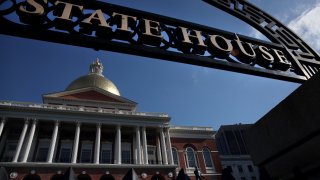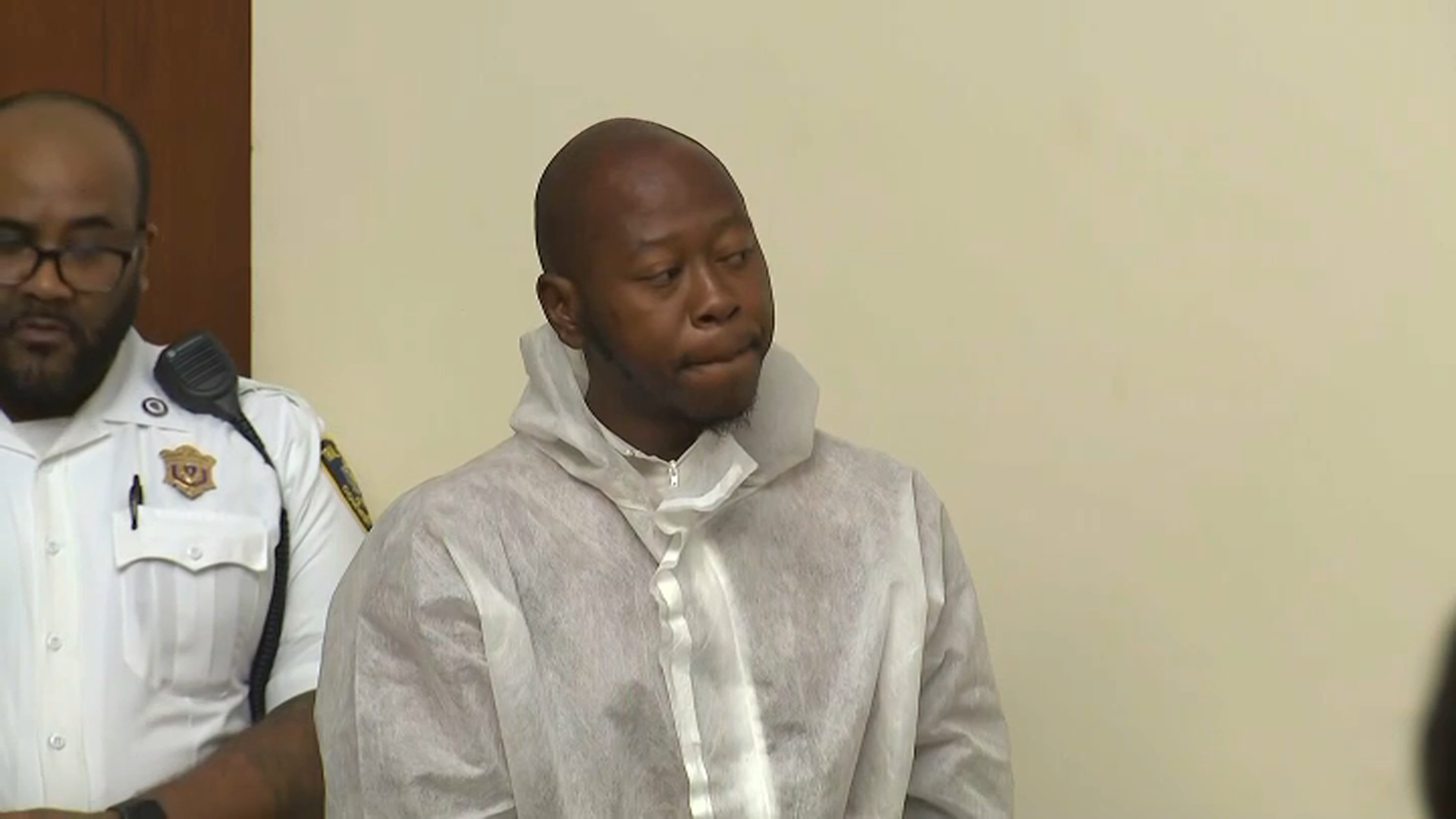
Beacon Hill will deposit less money into savings and could face a budget deficit after tax revenues in fiscal year 2023 fell nearly half a billion dollars short of original projections, the Healey administration announced Friday.
The Massachusetts Department of Revenue announced Friday that it collected $39.164 billion over the course of fiscal year 2023, which ended June 30. That's nearly $2 billion less than the record haul in the previous year.
WATCH ANYTIME FOR FREE
>Stream NBC10 Boston news for free, 24/7, wherever you are. |
Total tax collections were $454 million or 1.1% below the original benchmarks used to craft the annual state budget, and $605 million below the updated projection the Healey administration made within weeks of taking office in January.
The tax collection shortfall is the first since fiscal year 2020, when revenues missed expectations by about $693 million early in the COVID-19 crisis. It's also a reversal after two years of historic budget surpluses that gave elected officials billions of extra dollars to spend or save.
Get updates on what's happening in Boston to your inbox. Sign up for our >News Headlines newsletter.
However, every dollar of the revenue shortfall -- estimated at between $39 million and $177 million depending on how lawmakers proceed -- does not translate one-to-one into a budget deficit.
The vast majority of the slowdown, about $593 million of the $605 million compared to the latest benchmark, involved capital gains tax collections, according to the Healey administration. Massachusetts can only put a certain amount of revenue from capital gains taxes toward direct spending each year, and any "excess" collections above that level must be deposited into savings.
Even though revenue from the capital gains tax was less than expected, it still surpassed the maximum spending threshold, meaning the downturn in collections affected how much the state will stash away more than it will disrupt the FY23 budget outlook.
"Despite a disappointing month for tax collections in April, tax revenue in May and June exceeded revised benchmarks and helped to shrink the gap," said Administration and Finance Secretary Matthew Gorzkowicz, adding that the state is "on track to close Fiscal Year 2023 in balance" without dipping into the "rainy day" savings account.
A Healey administration official who would communicate only on background estimated Friday that available tax revenue in FY23 was about $39 million less than the amount lawmakers and former Gov. Charlie Baker factored into the annual state budget.
That gap increases to $177 million when accounting for revenue from the 4% income surtax on household income above $1 million, the official said. Starting July 1, revenue from the voter-approved levy will automatically be transferred into a separate account to fund education and transportation investments, but non-capital gains surtax collections made in FY23 are in a bit of a gray area.
About $138 million in surtax revenue collected in FY23 -- an estimate that could still change because some filers requested extensions on their tax returns until October -- is sitting in the state's general fund. If lawmakers choose to keep the money there, the tax revenue shortfall would stay at $39 million. If they opt instead to sweep FY23 surtax revenue into the same account where all future surtax revenue will go, the gap would increase to $177 million.
There are several options to close the tax revenue gap without drawing down savings, the official said. Reversions, when a department does not use all the money appropriated to it, are fairly common, and other sources of revenue such as fees could help as well.
If needed, Massachusetts still has about $1.3 billion from previous years' surpluses and onetime federal pandemic relief sitting in a "transitional escrow account," though the official said using that money might not be necessary.
Beacon Hill budget-writers originally expected they would collect enough excess capital gains tax revenue to deposit about $1.5 billion into the "rainy day" stabilization fund in FY23.
Following the weaker-than-forecast performance, state government will now deposit $750 million into the rainy day fund, pushing its balance to nearly $8 billion. Massachusetts will also sock away $41.7 million to a trust fund for state retiree benefits and another $41.7 million into its pension liability fund.
Tax collections fell sharply in April, and although performance was better in May and June, it was not enough to recover fully from the gap that emerged.
DOR reported Friday that it collected $4.137 billion in June 2023, about $6 million or 0.1 percent less than in June 2022 and $394 million or 10.5 percent above the most recent monthly benchmark. After adjusting for the net impact of a pass-through entity excise, June collections were $9 million or 0.2 percent less than the same month last year and $274 million or 7.5 percent above benchmark.
Gov. Maura Healey's deputies announced the latest revenue figures two days after she signed a $56 billion fiscal year 2024 budget that increases spending roughly 6.2% over the version enacted last summer.
Top House and Senate Democrats who negotiated the compromise budget weeks earlier did not alter its assumption of $40.4 billion in tax revenue for the current fiscal year, the first time in seven years the conference committee neither raised nor decreased that forecast.
Massachusetts Taxpayers Foundation President Doug Howgate said he believes it "made sense" to stick with the original revenue projection for FY24 despite the shortfall in FY23.
"The reality is you're talking about revenues that came in within less than a point and a half of where we thought they were going to come in. $600 million one way or the other, to me -- that doesn't give you enough information to make a major change on a $40 billion projection," Howgate said.
Both the administration and Howgate said Friday they remain optimistic about the state's outlook and the affordability of the spending increase in the FY2024 budget.
"While you never want to end the year below benchmark, when you think about the range of emotions in April, I think we're in a fundamentally better place now than some folks thought we'd be in two months ago," Howgate said.
Howgate said he does not expect policymakers to need "any crazy gimmicks to have to end the year with a balance," noting there are other forms of revenue beyond taxes such as reversions that could help close any gaps.
He praised Healey for vetoing the Legislature's proposal to use about $200 million from the one-time transitional escrow account as part of the FY24 budget, calling it the "right approach" to minimize risk moving forward.
"We're not in a catastrophic fiscal picture by any means, but we can't just blithely assume you're going to end every year with a $2 billion budget surplus," Howgate said.




